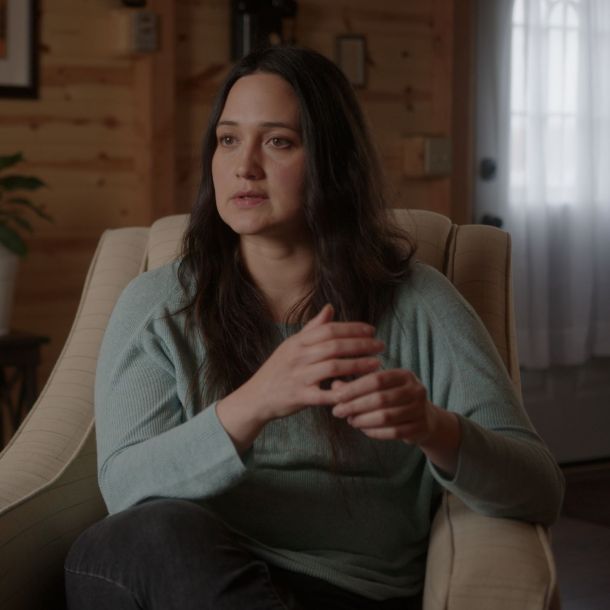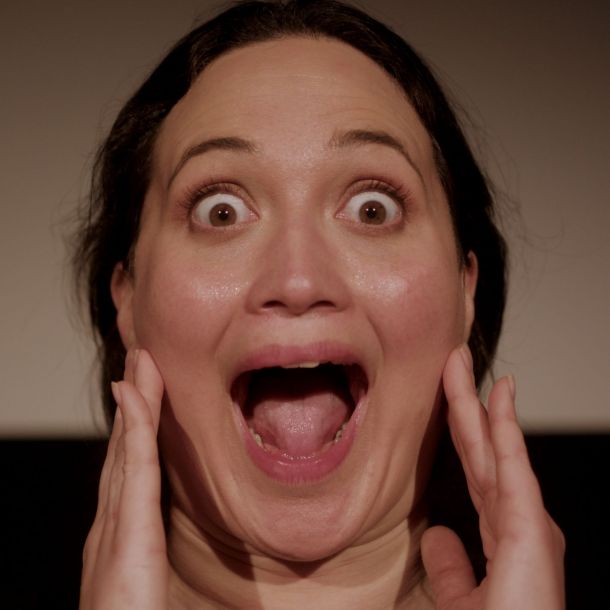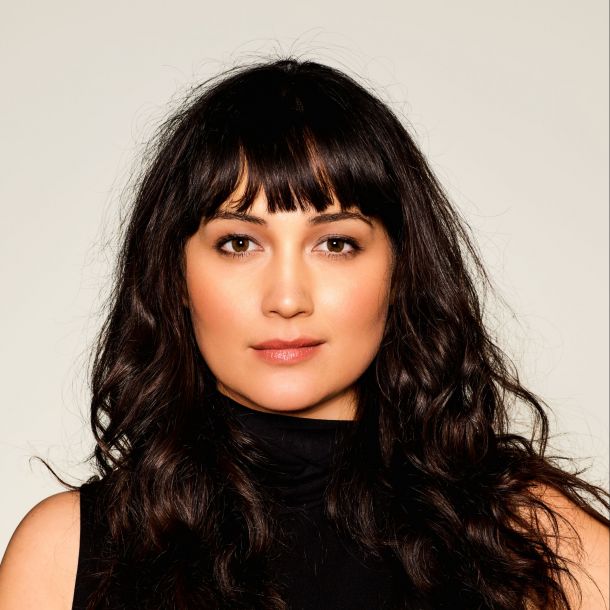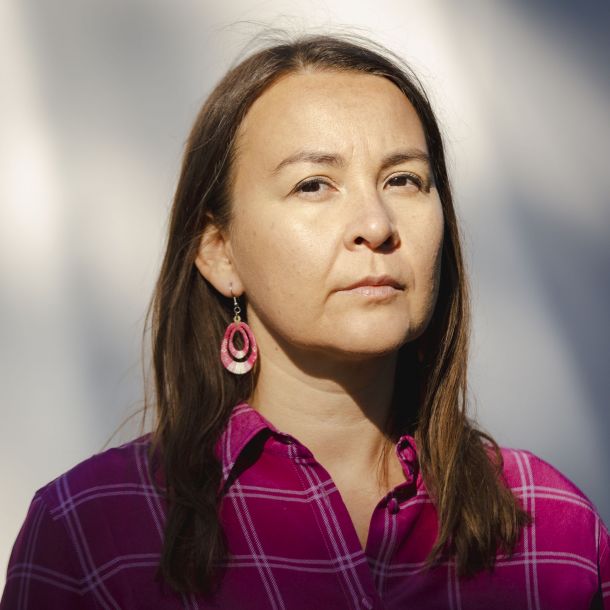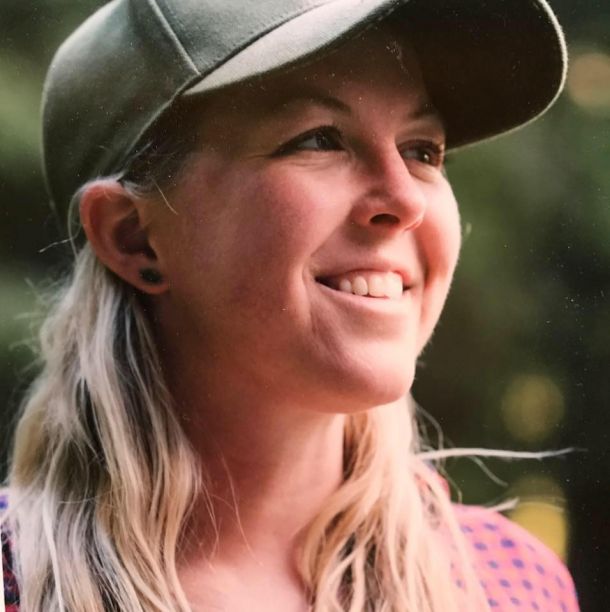Brooke Swaney’s director statement
When actress Lily Gladstone and I decided to make a short documentary about her as a master in the making, we started getting philosophical, which can happen when you throw two nerdy Blackfeet people together. In the 1940s, American Psychologist Abraham Maslow came out with a philosophy about the factors that come into play when trying to reach one’s goals – a hierarchy of needs. The idea basically states that in order to reach self-actualization, or the complete realization of potential, many things have to be met first – physiological things like food and shelter, safety and then intangible things like love and belonging, and self-esteem.
Maslow lifted a lot of his ideas from Niitsitapi teachings when studying with elders on the Blackfeet Nation in 1938. But his view presupposes a Western way of thinking, centering the ‘me’ rather than the we. For Lily, “the basis of the Blackfoot hierarchy of need essentially is you need to have self-actualization as the foundation…And how does your purpose, how does your individual gift that is supported, identified, nurtured and encouraged by your community so early in an ideal balanced society…benefit the whole in the continuation of your people.”
For Lily, elders identified her gift as an actor and storyteller as a child. Her family encouraged her. Her community supports her. This is something we wanted to share in the film. Same with her motivation to inspire and support the youth, which is why we returned to “the rez” to share an acting workshop with Browning High School students.
I also wanted to dig into her process as an actor, so the film focused on Lily’s craft. We filmed her doing her Alexander Technique warm ups, we filmed mock screen tests, we filmed a Shakespeare monologue. Not all of this made the final edit, but her craft, her work was the goal. This included any auditions or preparations for industry meetings. The red carpet motif was also an experiment with and a symbol for the industry as it relates to her craft.
At the time of filming, Lily was on call for ADR work for “Killers of the Flower Moon,” Martin Scorsese’s latest film, cast opposite Leonardo DiCaprio. As a filmmaker or anyone who pays attention to film ever, this is huge. Native stories with Native actors are having a serious moment. And for some, it’ll be Lily’s, “I have arrived” moment.
Pinnacle isn’t the right word to describe the current place in Lily Gladstone’s acting career. I am sure there is yet so much more to come. And by the same token, I don’t think that Lily even thinks of it that way, although mainstream society certainly views Lily’s career to this point in this way. It isn’t necessarily about an arrival, but a moment in her life, where this firm groundedness, call it self-actualization, will serve her as things are about to get surreal with the fame machine.
About Lily Gladstone
Lily Gladstone will next star in Martin Scorsese’s “Killers of the Flower Moon,” opposite Leonardo DiCaprio and Robert DeNiro. She had her breakout in Kelly Reichardt’s “Certain Women” opposite Kristen Stewart and Laura Dern. Additional film credits include the 2020 SXSW selected “Freeland” opposite Krisha Fairchild, a turn in Erica Tremblay’s short film “Little Chief” which premiered at Sundance, and she can next be seen in “The Last Manhunt” opposite Jason Momoa, “Winter in the Blood,” and the lead in Morissa Maltz’s “The Unknown Country,” which premiered at SXSW. She previously recurred on Showtime’s hit series, “Billions.” Gladstone was raised on the Blackfeet Reservation in Northwestern Montana and comes from the Kainai (Blood), Amskapi Piikani (Blackfeet) and NiMíiPuu (Nez Perce) Tribal Nations.
About filmmaker Brooke Pepion Swaney:
Brooke (Blackfeet/Salish) works to tell Indigenous stories and stories from other marginalized communities. “Daughter of a Lost Bird,” currently screening on PBS’ “America ReFramed” is her first feature documentary, winning the NYWIFT Best Female Director for a Documentary at Woodstock, the Groundbreaker Award at the Cleveland International Film Festival and the Best Film Virtual Exclusive Award at the Atlanta Film Festival. “OK Breathe Auralee,” her NYU graduate thesis film, screened at the 2012 Sundance Film Festival and has TV distribution with FNX (First Nations Experience, a PBS affiliate). She made the Blacklist’s Inaugural Indigenous List with “Tinder on the Rez” along with her co-writer Angela Tucker. She also produced “Bella Vista (Rotterdam), “Sixty Four Flood” (PBS & PBS Digital) and the podcast “All My Relations” with Matika Wilbur and Dr. Adrienne Keene. She has fellowships from PBS Wyncote, a Woodstock/White Feather, Sundance/Time Warner and the Native Arts and Cultures Foundation. She holds an MFA in Film from NYU. Brooke serves as a screenwriting faculty mentor at the Institute of American Indian Arts in their Creative Writing MFA program. She lives and works in her homelands in Montana.
About filmmaker Jeri Rafter
Jeri Rafter is dedicated to producing films in Montana about Montana characters. She most recently produced “Butcher’s Crossing” starring Nicholas Cage and Fred Hechinger, her other co-production credits include “Broke” starring Wyatt Russell and Dennis Quaid as well as Annabelle Attanasio’s directorial debut “Mickey and the Bear” starring Camila Morrone and James Badge Dale (SXSW, ACID Cannes). She served as production manager for the seminal Ted Kaczynski film “Ted K” (Berlinale 2021) directed by Tony Stone and starring Sharlto Copley. Her other producing credits include a documentary about Native adoptees, “Daughter of a Lost Bird.” Jeri has an MFA in Media Arts from the University of Montana.


